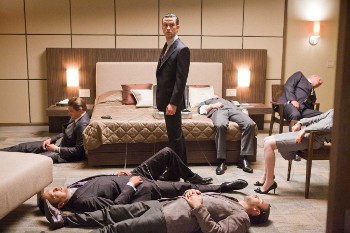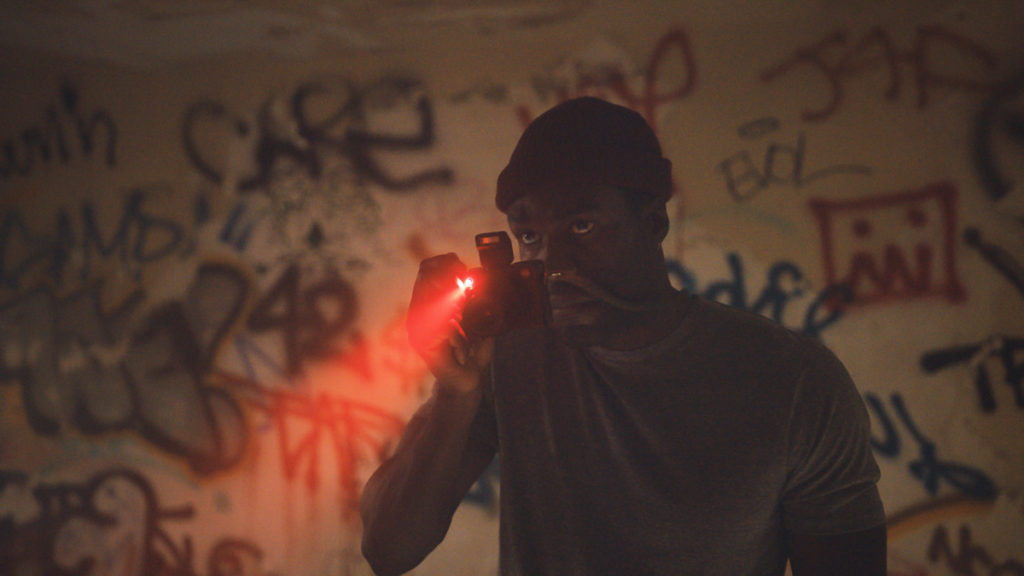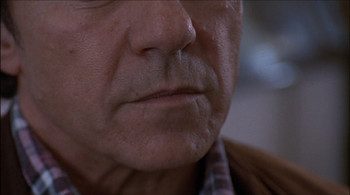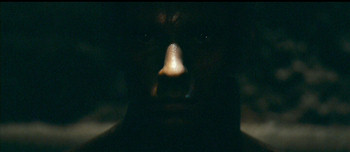 In taking down Christopher Nolan’s Inception, Jim Emerson writes: “[W]hat this movie’s facilely conceived CGI environments have to do with dreaming, as human beings experience dreams, I don’t know. … [T]he movie’s concept of dreams as architectural labyrinths – stable and persistent science-fiction action-movie sets that can be blown up with explosives or shaken with earthquake-like tremors, but that are firmly resistant to shifting or morphing into anything else – is mystifying to me.” The complaint is fair enough, given that Inception regularly refers to “dreams.” But what’s going on is only marginally related to how “human beings experience dreams.” The movie’s plot concerns espionage that uses as its tool a shared, drug-induced dream-like state with environments created by external “architects.” And if one does a little thinking, one realizes that the technique of the premise is effective only if scientists and practitioners can exercise control over the dreaming – that is, if they eliminate the inherent fluidity, randomness, and chaos.
In taking down Christopher Nolan’s Inception, Jim Emerson writes: “[W]hat this movie’s facilely conceived CGI environments have to do with dreaming, as human beings experience dreams, I don’t know. … [T]he movie’s concept of dreams as architectural labyrinths – stable and persistent science-fiction action-movie sets that can be blown up with explosives or shaken with earthquake-like tremors, but that are firmly resistant to shifting or morphing into anything else – is mystifying to me.” The complaint is fair enough, given that Inception regularly refers to “dreams.” But what’s going on is only marginally related to how “human beings experience dreams.” The movie’s plot concerns espionage that uses as its tool a shared, drug-induced dream-like state with environments created by external “architects.” And if one does a little thinking, one realizes that the technique of the premise is effective only if scientists and practitioners can exercise control over the dreaming – that is, if they eliminate the inherent fluidity, randomness, and chaos.



 Have you calmed down yet? Are you over the orgasmic delight you felt at the way David Chase defied all predictions about the end of his beloved series, The Sopranos? Have you recovered from your rage about ambiguity, a lack of closure, and Journey? Good. Now let’s clear a few things up.
Have you calmed down yet? Are you over the orgasmic delight you felt at the way David Chase defied all predictions about the end of his beloved series, The Sopranos? Have you recovered from your rage about ambiguity, a lack of closure, and Journey? Good. Now let’s clear a few things up. A throw-away bit of connective tissue struck me in
A throw-away bit of connective tissue struck me in  Smoke begins in Auggie Wren’s cigar shop with omniscient chatter about the Mets and ends in a deli with a made-up tale about how Auggie got his first camera. Almost everything in between is also bullshit, in the sense that its relationship with objective reality is utilitarian. We speak the truth when it suits our needs, but we shouldn’t let it get in the way of the story we’re trying to spin.
Smoke begins in Auggie Wren’s cigar shop with omniscient chatter about the Mets and ends in a deli with a made-up tale about how Auggie got his first camera. Almost everything in between is also bullshit, in the sense that its relationship with objective reality is utilitarian. We speak the truth when it suits our needs, but we shouldn’t let it get in the way of the story we’re trying to spin. In taking down Christopher Nolan’s Inception, Jim Emerson
In taking down Christopher Nolan’s Inception, Jim Emerson  The contradictions of director/co-writer/composer Tom Tykwer’s Perfume: The Story of a Murderer start in the title, with the onomatopoeic softness and ether of a single word paired with a morbid, blunt descriptive subtitle. Both components are drawn from the novel by Patrick Süskind, but the associations that pile up and pull at each other during the movie’s opening scenes are equally Tykwer’s, cinematic and lovingly ambiguous.
The contradictions of director/co-writer/composer Tom Tykwer’s Perfume: The Story of a Murderer start in the title, with the onomatopoeic softness and ether of a single word paired with a morbid, blunt descriptive subtitle. Both components are drawn from the novel by Patrick Süskind, but the associations that pile up and pull at each other during the movie’s opening scenes are equally Tykwer’s, cinematic and lovingly ambiguous.